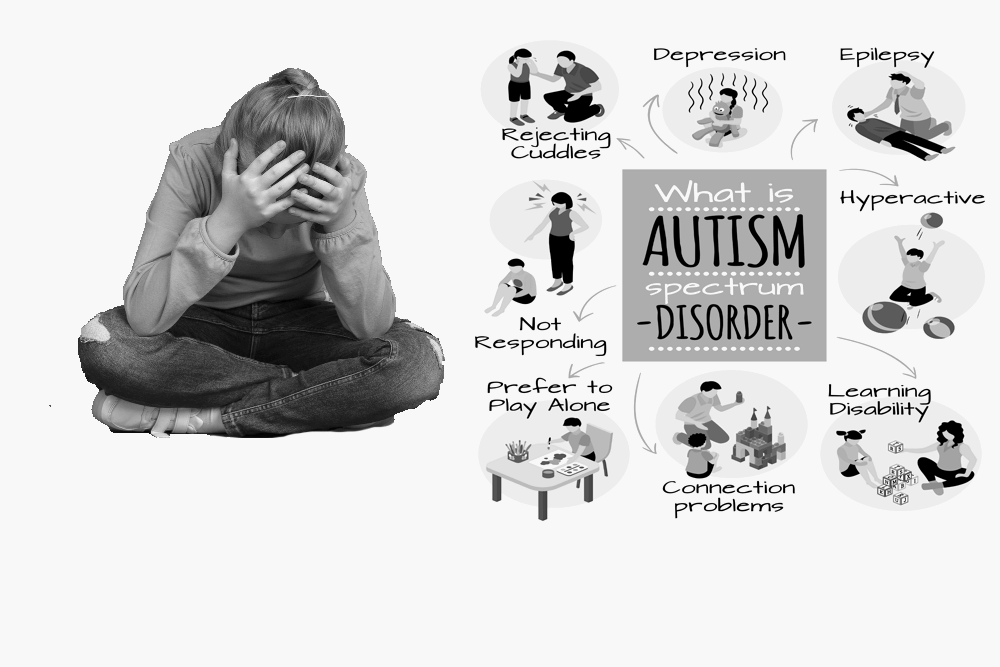
Autism, also known as Autism Spectrum Disorder (ASD), is a neurodevelopmental disorder that affects social interaction, communication, and behavior. It is a complex and highly individualized condition that can range from mild to severe, affecting individuals in different ways. According to the Centers for Disease Control and Prevention, 1 in 54 children in the United States is diagnosed with autism spectrum disorder. Despite its prevalence, there are still many misconceptions about the nature of autism, including the notion that it is caused by brain damage. In this article, we will explore the latest research on autism and dispel the myth that it is a form of brain damage.
Overview of Autism and Its Symptoms
Autism is a complex condition that affects individuals in different ways. Some common symptoms of autism include:
- Difficulty with social interaction and communication, such as making eye contact, understanding body language, and initiating conversation
- Repetitive behaviors, such as rocking, spinning, and repetitive movements
- Restrictive interests, such as a strong fixation on certain objects or activities
- Unusual responses to sensory stimuli, such as a heightened sensitivity to sound, light, or touch
It is important to note that not all individuals with autism will experience all of these symptoms, and the severity of these symptoms can vary greatly from person to person.
Current Scientific Understanding of the Causes of Autism
Studies have shown that autism is not caused by brain damage, but rather by a combination of genetic and environmental factors. While there is still much that is unknown about the causes of autism, researchers have identified several risk factors, including:
- Family history: having a sibling or family member with autism increases the risk of developing the condition
- Advanced parental age: both mothers and fathers who are older when they have children are at increased risk for having a child with autism
- Premature birth and low birth weight: children born premature or with low birth weight are at increased risk for developing autism
- Environmental factors: exposure to certain toxins during pregnancy and early childhood has been linked to an increased risk of autism
Relationship between Autism and Brain Damage
There is no evidence to suggest that autism is caused by brain damage. In fact, many individuals with autism have normal or above-average intelligence and can go on to lead successful and fulfilling lives. While some individuals with autism may have associated medical conditions, such as epilepsy, that can affect brain function, these conditions are separate from autism itself.
A quote from a leading researcher in the field provides further insight into the relationship between autism and brain damage: "Autism is a neurodevelopmental disorder that affects social interaction and communication, but it is not a result of brain damage."
Impact of the Misconception that Autism is Brain Damage
The misconception that autism is a form of brain damage can have serious consequences for individuals with autism and their families. For example, it can lead to a lack of understanding and support from friends, family, and the community, as well as limited educational and employment opportunities.
It is also important to note that this misconception can contribute to the stigma surrounding autism and discourage individuals from seeking early diagnosis and treatment. Early intervention and support are crucial for individuals with autism and can make a significant difference in their development and future success.
A case study of a child with autism who went on to achieve success in their chosen field, despite not having any brain damage, highlights the importance of support and early intervention in the lives of individuals with autism. This child received early interventions, including speech and occupational therapy, as well as support from their family, educators, and community. They went on to attend college, pursue a successful career, and lead a fulfilling life.
Conclusion
In conclusion, autism is a complex and misunderstood neurodevelopmental disorder that affects social interaction and communication. Despite popular misconceptions, it is not a result of brain damage. Rather, the latest research suggests that autism is caused by a combination of genetic and environmental factors.
It is important for parents, caretakers, educators, and individuals with autism, as well as the general public, to educate themselves about the true nature of autism in order to dispel these myths and support those on the autism spectrum. With understanding and acceptance, individuals with autism can lead fulfilling and successful lives.
Health

